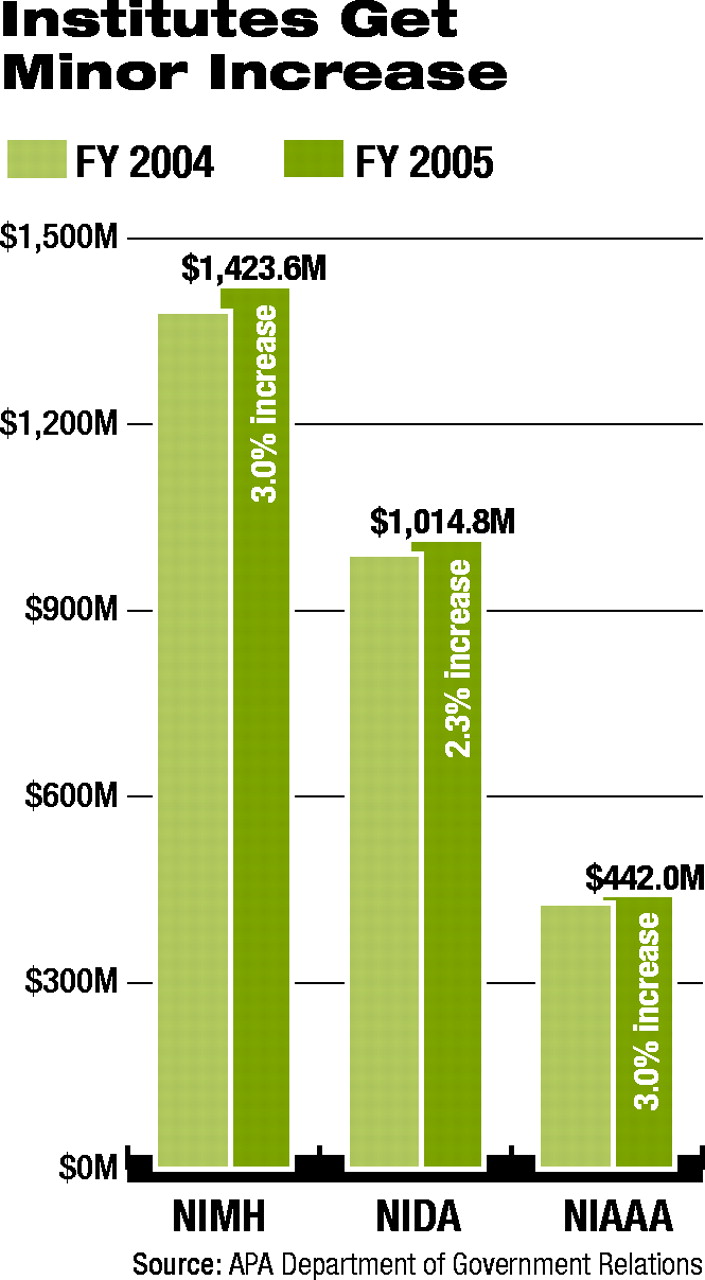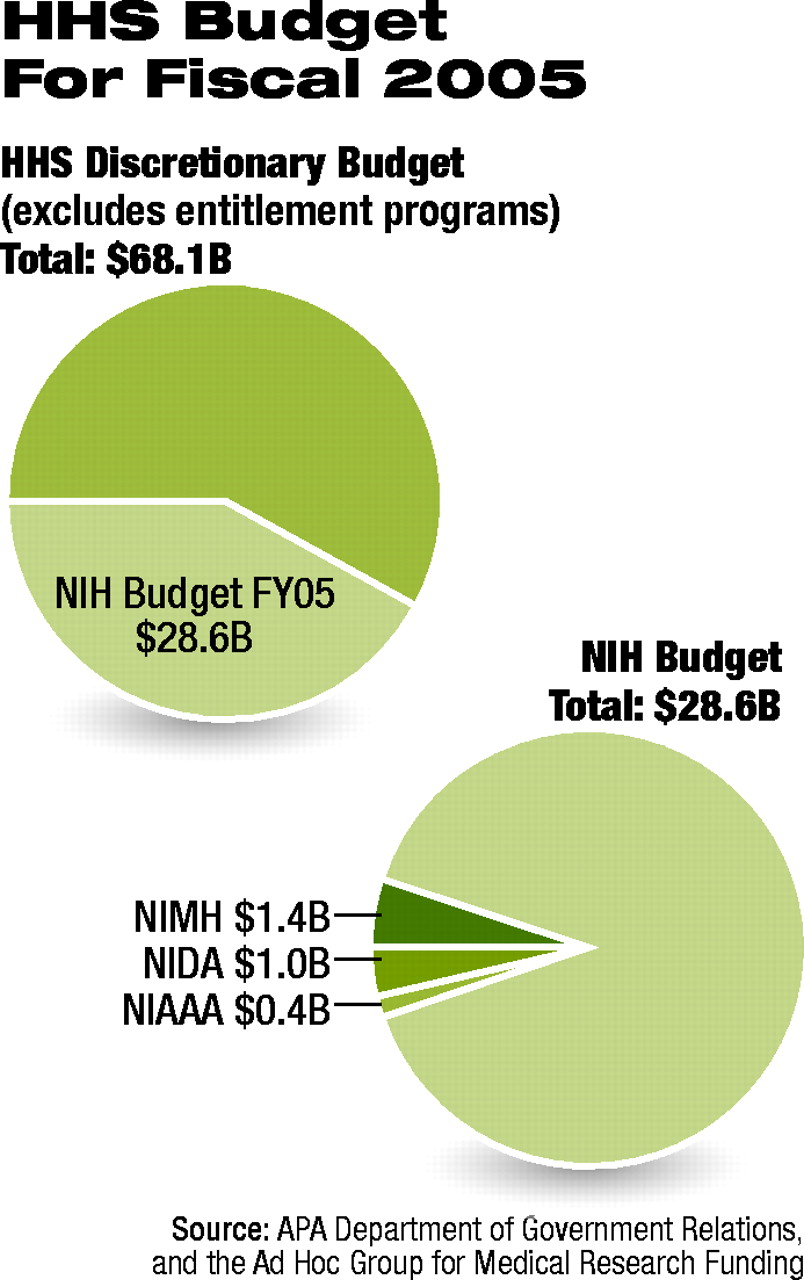Faced with record-breaking federal budget deficits, Congress has tightened discretionary (nonentitlement) spending on domestic programs in Fiscal 2005, which began last October.
The budgets of 13 domestic departments including Health and Human Services (HHS) were rolled into one omnibus spending measure by Congress. The 3,000-or-so-page legislation was passed in November and signed into law (PL 108-447) by President Bush last month.
Congress passed separate spending bills for the departments of Defense and Homeland Security earlier in the fall.
Discretionary funding for HHS (that is, excluding Medicare, Medicaid, and other entitlement programs) decreased by about 1.5 percent to $68.1 billion in Fiscal 2005. The Fiscal 2005 budget for the National Institutes of Health (NIH), a component of HHS, increased by 2 percent, to $28.6 billion in Fiscal 2005, according to Lizbet Boroughs, an associate director in APA's Department of Government Relations.
“This is the lowest annual budget increase for NIH in more than a decade,” said Boroughs.
APA and allied organizations were successful in obtaining a five-year commitment from Congress, the Clinton administration, and the Bush administration to double the NIH budget between Fiscal 1998 and 2003. As a result, NIH experienced record-breaking budget increases for those five years.
Once the doubling goal was met, however, the budget increase for NIH for Fiscal 2004 was only about 3 percent.
To maximize resources at NIH, Director Elias Zerhouni, M.D., initiated the“ Roadmap for Biomedical Research” in Fiscal 2003. According to NIH, its goal is to “accelerate fundamental discovery and translation of that knowledge into effective prevention strategies and new treatments. The strategic initiatives to be funded under the NIH Roadmap will address critical roadblocks and knowledge gaps that currently constrain rapid progress in biomedical research.”
Roadmap initiatives planned for Fiscal 2005 will focus on developing the infrastructure necessary for research to be translated into clinical practice, Zerhouni told congressional appropriations committees last April.
NIH plans to use $237 million of its fiscal 2005 budget for Roadmap initiatives, which represents an increase of $109 million over last year's Roadmap funding. Zerhouni estimated that $60 million of the $237 million would come from his discretionary fund and $177 million from the institutes' and centers' budgets for this purpose, which Congress allowed for in its final HHS budget bill.
For Fiscal 2005 Congress approved about a 3 percent budget increase for the National Institute of Mental Health (NIMH), the National Institute on Drug Abuse (NIDA), and the National Institute on Alcohol Abuse and Alcoholism (NIAAA). This amounts to a gain of $41 million for NIMH, $23 million for NIDA, and $13 million for NIAAA, according to Boroughs (see chart). NIMH and NIAAA received increases similar to those in Fiscal 2004, while NIDA received a smaller increase.
By contrast, Congress increased the Fiscal 2005 budget of the National Institute of Allergy and Infectious Diseases by about 10 percent, to $4.4 billion. This includes $100 million to fund international programs that fight HIV/AIDS, malaria, and tuberculosis and $180 million to build facilities“ to enhance the nation's capacity to do research on biological and other agents,” according to the final congressional budget bill.


